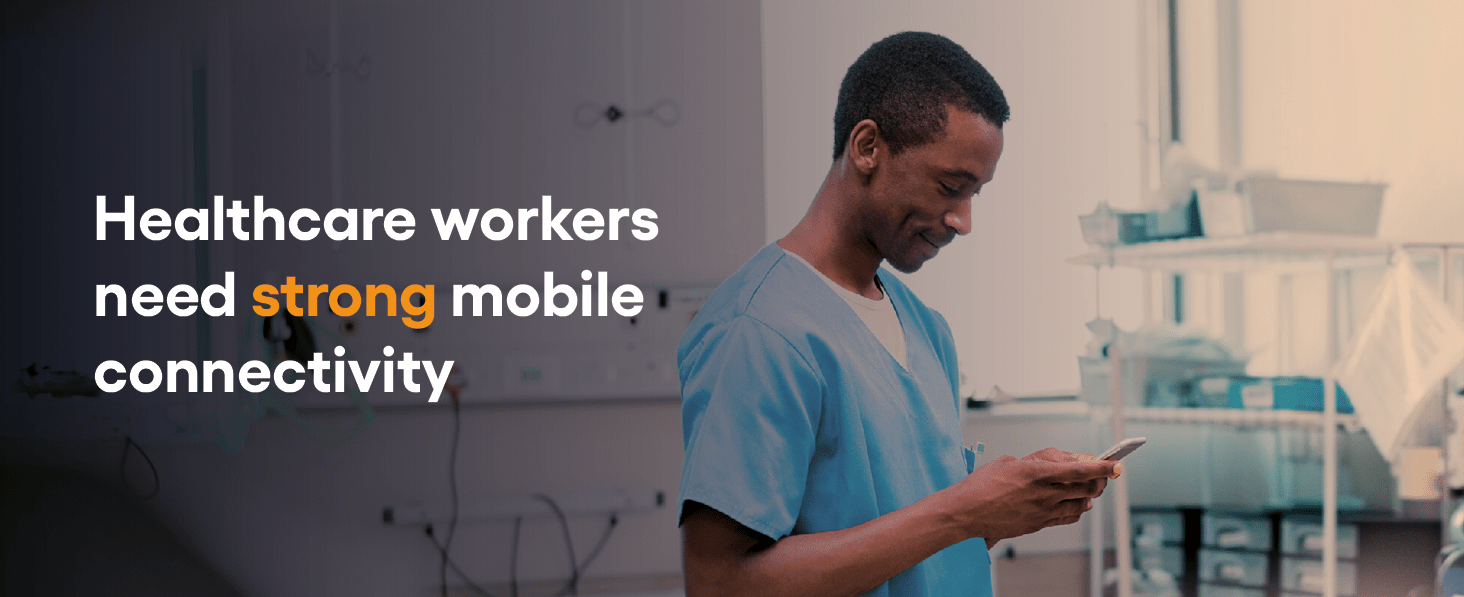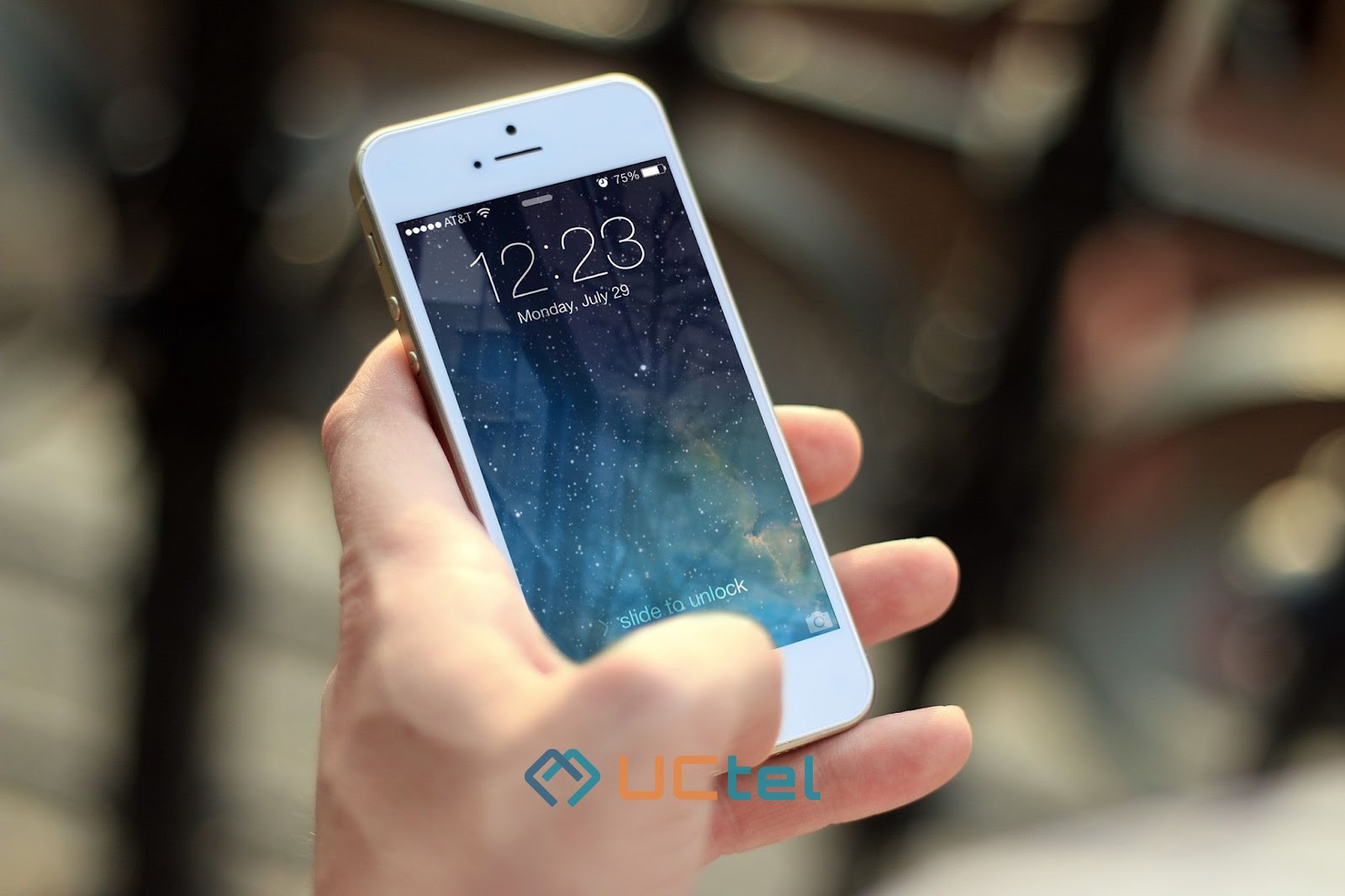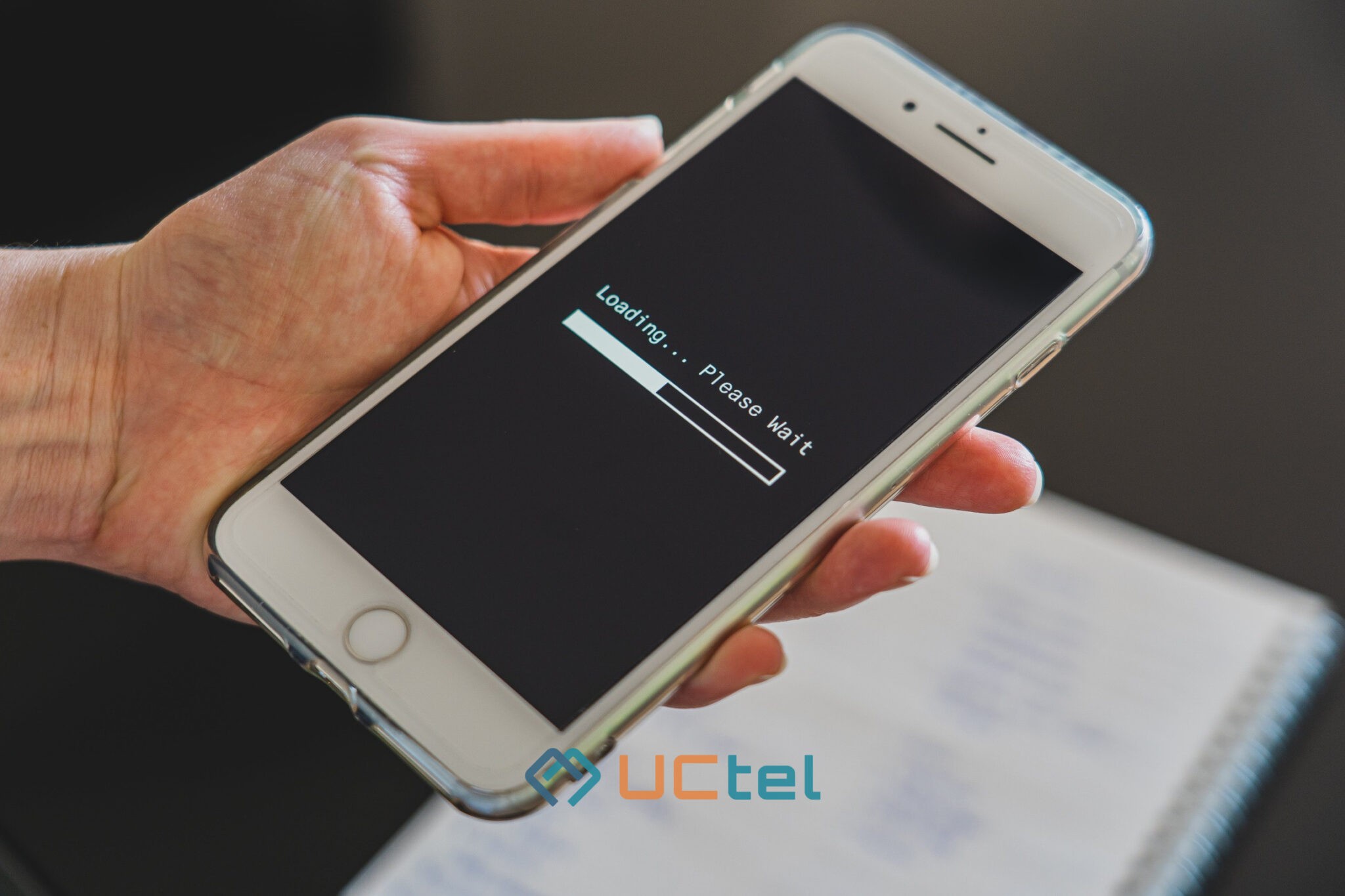
3 Healthcare Worker’s Mobile Connectivity Issues and How to Fix It
Table of contents
Healthcare workers work tirelessly on the frontlines, facing many stressful situations over the course of endless shifts to save lives and keep people safe. Having installed Cel-Fi QUATRA signal boosters at NHS buildings in the past, take it from us: healthcare workers need strong mobile connectivity solutions and reliable coverage to maximise their effectiveness in hospitals.
Mobile devices allow doctors to contact relatives and other staff members, easily look up patient records, and use apps to assist with diagnosis, organisation, and rota scheduling. A study on this topic shows that 91% of doctors use a smartphone and 88% use it regularly in a clinical setting. However, as we’ve discussed before, hospitals are notorious for having poor in-building mobile phone signal and giving healthcare workers mobile connectivity issues.
Here are three scenarios that health workers might face that show why a strong mobile phone signal is vital to hospital operations. Let’s find out why it is crucial to improve mobile connectivity for healthcare workers and how to solve these mobile connectivity issues in healthcare.
Scenario 1: A hospital expands its staff or sees a spike in patients
Hospitals can have a wide variety of staff with so much going on that it’s difficult to keep tabs on everything effectively, particularly during intensely busy periods (e.g., the COVID-19 pandemic). With mobile devices and mobile working in healthcare, nurses and doctors are able to access rotas wherever they are, providing more flexibility and helping them stay organised during intensely busy periods.
In recent years, several apps have been launched to help healthcare workers get organised within their hospital connectivity. HealthRota, for example, is a rota planning application that gives NHS Trust staff a clear view of their work schedule. But many of these apps require a mobile phone signal to work effectively.
Scenario 2: A doctor needs to look up a patient’s records quickly
More and more hospitals worldwide are seeing the benefits of changing the connectivity methods and moving to a paperless model, whereby patients have electronic health records stored in the cloud that can easily be shared. Healthcare workers can access digital patient records on tablets and mobile phones using mobile data, which is particularly important for specialist units such as maternity clinics.
Doctors are increasingly using mobile apps to organise their workload, keep up with the latest developments in medicine, and interact with patients. One such app is Figure 1, a sort of Instagram for doctors which allows them to discuss real medical cases with over 500,000 healthcare professionals worldwide.
Scenario 3: Keeping lonely patients occupied
The hospital can be incredibly isolating for people visiting alone. Particularly during the pandemic, which restricted access to the wards. Hospitals need to provide strong mobile coverage and Wi-Fi connectivity so that people can reach out to loved ones, keep up with what’s happening outside, stream entertainment, and access important information such as emails and insurance documents.
Consider UCtel to Increase Mobile Connectivity in Healthcare
Do your hospital workers face mobile connectivity problems? Implement top-notch mobile-first solutions and premium healthcare connectivity services with UCtel.
[Explore our advanced services for your business]
Healthcare facilities need strong in-building mobile connectivity
Healthcare workers rely on fast communications, speedy diagnoses, and good communication to do their jobs well. If a lack of mobile phone signal constantly holds them up, it will be harder for them to communicate with their patients and each other.
UCtel knows how to improve mobile connectivity in healthcare. With a passive distributed antenna system from Cel-Fi, hospitals can benefit from enhanced mobile device connectivity across their entire building, allowing doctors and staff to communicate effectively. It also helps patients to stay in touch with their loved ones and makes their stay at a hospital 1,000s of times more comfortable.
The best part? To improve mobile connectivity in healthcare, there is no need to go through a massive upheaval. Instead, Cel-Fi’s Ofcom-compliant solution can be installed in a hospital in a matter of weeks with no major building works required.
If your healthcare facility is constantly struggling with poor phone signal and your hospital workers face mobile connectivity issues, get in touch today with your building’s floorplan and we’ll discuss how we can create a bespoke solution to meet your building’s requirements. Get in touch with us today by emailing sales@uctel.co.uk or calling 0333 344 4417.
Conclusion
The availability of high-quality, reliable, and technologically advanced mobile communications is often critical to the provision of top-effective healthcare services. The high connectivity of mobile devices can significantly improve the hospital workers’ experience and enhance the quality of patient care.
Keep your network connection smooth, powerful, and fast to provide high-quality care and remain competitive in the UK’s dynamic and technologically advanced healthcare market. Conquer all connectivity problems and make sure your wireless technology is highly efficient, secure, and robust.
Take your healthcare digital connectivity and mobile communications to the next level with UCtel. Reach out to us to deliver advanced in-building mobile signal solutions for hospitals or other medical facilities and to implement secure, cost-effective, and reliable private 5G networks for high-performing communications.
Increase mobile connectivity in the hospital to meet the needs of your employees and your patients. Contact UCtel right now and bring your healthcare business into the digital age.






